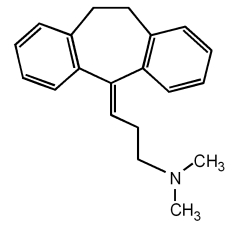Timoshanko A, Stough C, Vitetta L, Nathan PJ. Behav Pharmacol 2001; 12:635-640.
Research has indicated that the herb St John's Wort (Hypericum perforatum) has comparable efficacy to conventional antidepressants in the treatment of depression. Although clinical studies have demonstrated that hypericum has a superior side-effect profile compared to standard antidepressants, no study has directly compared the cognitive and psychomotor effects of hypericum with those of other antidepressants. The aim of the current study was to examine the acute effects of hypericum on cognitive and psychomotor function, and to compare its effects with those of amitriptyline. Thirteen healthy volunteers received an acute dose of placebo, amitriptyline (25 mg, positive control) or hypericum (900 mg or 1800 mg) in a double-blind, placebo-controlled design. Cognitive and psychomotor tests and subjective measures of sedation were administered before and 1, 2 and 4 hours after drug administration. Amitriptyline impaired performance on a battery of psychological tests, which included critical flicker fusion (CFF), choice reaction time (CRT), digit symbol substitution test (DSST), profile of mood states (POMS) and the line analogue rating scale (LARS), while hypericum had neutral effects on performance in these tests. However, hypericum induced a dose-related impairment on DSST. Current findings suggest that clinical doses of hypericum do not impair attention, sensorimotor function or information processing.
COPYRIGHT 2002 Thorne Research Inc.
COPYRIGHT 2002 Gale Group



